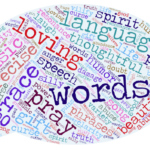Justifying a supporter who sucker-punched a protester at one of his rallies, Donald Trump explained, “ … he obviously loves this country, and maybe he doesn’t like seeing what’s happening to the country.”
 Marv KnoxTrump’s statement summons the bumper-sticker polarity of another conflict-ridden era in U.S. politics: “America. Love it or leave it.”
Marv KnoxTrump’s statement summons the bumper-sticker polarity of another conflict-ridden era in U.S. politics: “America. Love it or leave it.”
Both avowals of “love” for America reflect an emotion that could not be considered affection—much less love—except in the snarky, smarmy, ominously intimidating language of xenophobia that passes for patriotism in some quarters.
For “love” of country, Trump supporter John McGraw threw an elbow in the face of Rakeem Jones, who protested at a Trump rally in Fayetteville, N.C. For “love” of country, McGraw determined Jones was “not acting like an American,” he told bystanders, adding, “The next time we see him, we might have to kill him.”
Actually, Jones engaged in one of the most quintessentially American activities—freely speaking in political protest. What Jones did is so essentially American, it’s protected by the First Amendment. And the content of his protest, even if offensive, is not germane. America’s founders, whose own protests led to liberty, understood and protected political protest of all persuasions.
“Correct” isn’t permanent
The old bumper-sticker version of national devotion—“America. Love it or leave it.”—illustrates the transitory nature of correctness. The “love it or leave it” crowd just knew they were correct in supporting the Vietnam war, and those long-haired, pinko-commie demonstrators were wrong, wrong, wrong. In hindsight, Americans generally acknowledge the folly of Vietnam, and protestors who opposed the war demonstrated their love for America.
When speaking of love for country, humility and not hubris is in order. People across the political spectrum love their country, just as they feel the tug of self-righteous gravity to condemn as un-American those who disagree.
Unfortunately, most people who tout their love for America really only love the part of America that looks pretty much like them.
Sign up for our weekly edition and get all our headlines in your inbox on Thursdays
Let’s use Trump as an example, since he brought it up in the first place. How is sucker-punching a fellow citizen and threatening, “… we might have to kill him” actually loving America? How is dividing the nation along racial and ethnic lines actually loving America? And what about suspending the First Amendment’s religious liberty and free-speech guarantees?
Loving America …
Loving America isn’t about creating a homogenous white Protestant enclave. If that’s the America you love, you might have been comfortable in some of the New World colonies, but you started getting uncomfortable when those colonies coalesced into united states. Then the Bill of Rights sent you over the edge.
Loving America is about loving the American ideal, articulated in the second paragraph of the Declaration of Independence: “We hold these truths to be self-evident, that all men are created equal, that they are endowed by their Creator with certain unalieanable rights, that among these are life, liberty and the pursuit of happiness.”
Loving America means loving all the values protected in the First Amendment. And extending them to all Americans, not just your own tribe.
Loving America is about welcoming the world’s vagabonds, as described on the base of the Statue of Liberty: “Give me your tired, your poor, your huddled masses yearning to breathe free, the wretched refuse of your teeming shore; Send these, the homeless, tempest-tossed to me, I lift my lamp beside the golden door!”
Loving America means loving diversity—loving people of all religions and all political persuasions.
Loving America means loving her residents of every skin tone, language, class and creed.
Loving America means trusting her democratic ideal, believing the fair, ungerrymandered, unbought, uncensored will of the people guides them—all of them—toward a will, a purpose, an economy, an educational attainment that lifts all who abide in her bosom to equality, purpose and fulfillment.
Unattained ideal
Of course, loving America is an ideal never fully attained. Our foreparents who envisioned that ideal willfully set it aside. Some of them owned other human beings. For generations, they denied women full access to freedom. And yet it is the ideal—not the flawed vessels who transported it—that calls us to love America. That ideal pulled Americans forward, toward our country’s pristine image.
A heart-rending tragedy of our current political climate is the purposeful denial of our American ideal. Liberty and justice for all are at great risk.
Love for America that looks like only one kind of American is not love at all.
Greater goal
Christians, many of whom desecrate the American ideal in pursuit of a tainted “love” for Americans who look and believe as they do, face an even greater challenge. Jesus compels Christians to love America enough to place her third in their loyalty.
Jesus called Christians to love on successive levels. The Great Commandment directs us to “love the Lord your God with all your heart and with all your soul and with all your mind” and then to “love your neighbor as yourself” (Matthew 22:37, 39). Then, Jesus defined “neighbor” as someone who is your ethnic, political and religious opposite.
Jesus commanded Christians to love God first and then love our neighbor—the “other”—as much as we love ourselves. As much as we love “us”—America.
With a platform like that, Jesus couldn’t get elected dogcatcher in America in 2016. But if we claim to follow him, we must adopt his hierarchy of love as our own.














We seek to connect God’s story and God’s people around the world. To learn more about God’s story, click here.
Send comments and feedback to Eric Black, our editor. For comments to be published, please specify “letter to the editor.” Maximum length for publication is 300 words.